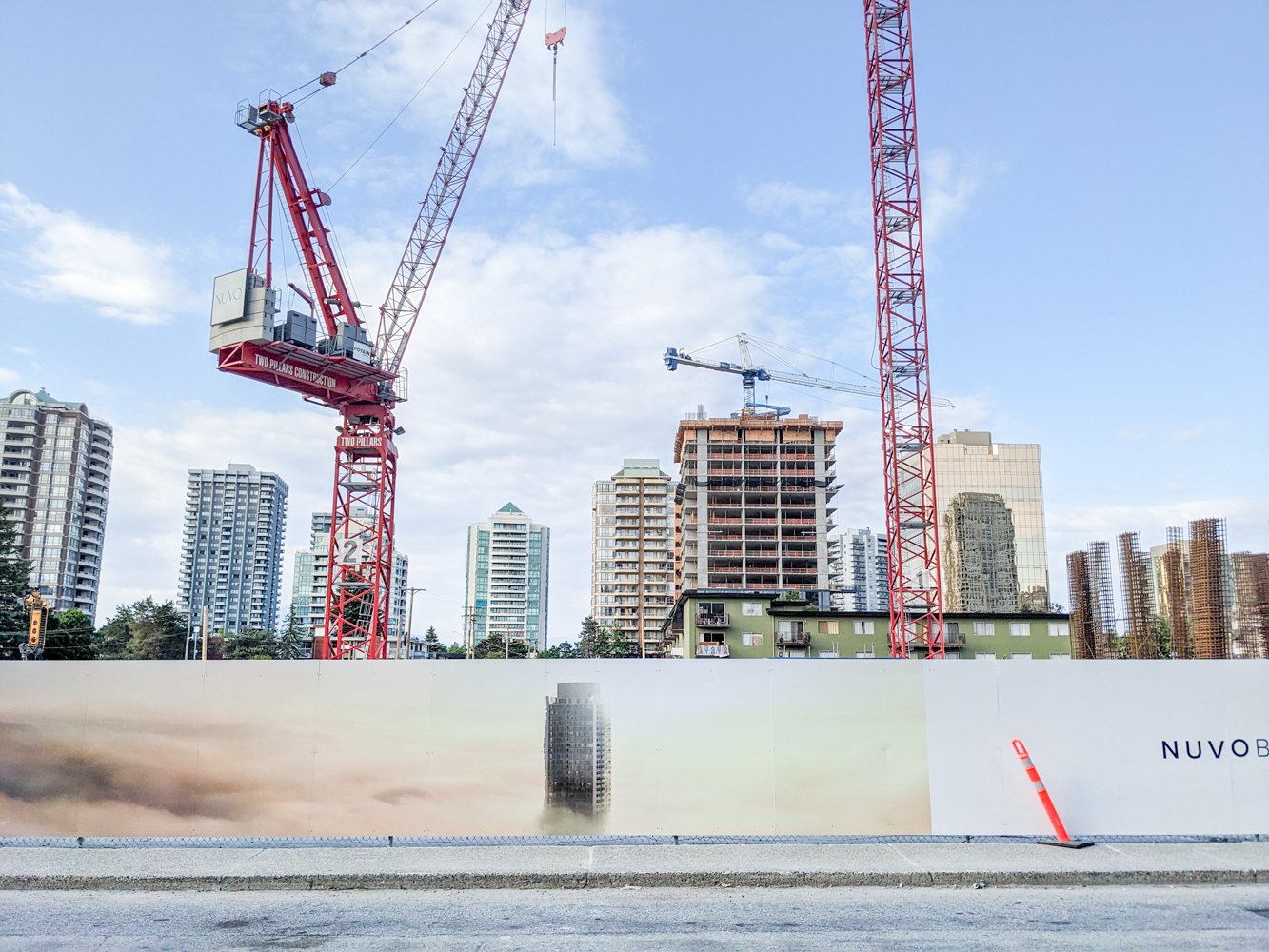Burnaby is diving into the deep end by becoming its own developer of affordable housing.
This fall, the city is planning to launch its own municipal housing corporation called the Burnaby Housing Authority.
The focus: housing that is “deeply affordable.”
Burnaby is aiming for units that rent at 20 per cent below the Canadian Mortgage and Housing Corp.’s median for an area, which would put it at 50 per cent below market rents. For people in need of greater subsidy to afford a home, the rents could be even lower.
Since city staff began researching the potential of a municipal housing corporation two years ago, Mayor Mike Hurley has said that it “doesn’t make any sense” to set up such an entity if it could only provide market-rate rentals. His government wanted to build housing that rents below that.
“We know it’s been many, many years with really not very much — if any — rental housing built in our city,” he said during a briefing to media. “And for that, we’re playing catch up. But we’re getting there quickly now that we’re putting all our policies in place. We see this as an opportunity to move things along faster and in a more productive way.”
However, the authority does plan to develop some market rentals to help subsidize those below-market units. Options for non-market ownership are also on the table, such as equity co-ops and rent-to-own units.
Rental ‘catch up’
Burnaby, just next door to Vancouver’s east side, is the third-largest city in the province with a population of about 250,000.
“For a long time, the city struggled, I think, with its transition and evolution from a municipality suburban to Vancouver to an urban municipality of its own right,” Ed Kozak, the city’s general manager of planning and development, told The Tyee.
“It resulted in a policy deficit of not just housing, but of transportation, needing to redo our [official community plan], social sustainability, social infrastructure — all the things that a growing community needs as it grows.”
An entity like a housing corporation, said Kozak, will allow the city to be more “nimble, proactive and direct.”
That means everything from dedicated staff and speedier approval processes, which Hurley hopes will signal to senior governments that Burnaby is an attractive partner to work with.
For about three years, Burnaby struggled to get senior government funding for two city-owned “shovel-ready” sites for affordable housing. After Burnaby decided to chip in its own money to get them built, CMHC stepped in with financing and the province with grant money.
“The only sad thing for me is that we didn’t do that a few years ago when we were waiting for funding,” said Hurley. “We believe this housing authority will allow us to move those projects forward that much more quickly.”
Between 2010 and 2018, Burnaby was losing a net average of 121 rental units per year, according to CMHC data. This was during a controversial period of “demovictions,” with developers displacing the residents of old walk-up apartments to build new condo towers.
It was largely cited as the reason for the defeat of previous mayor Derek Corrigan, who held the seat for 16 years and sat on council for another 15 years before that.
Upon his election in 2018, Mayor Hurley brought in a number of new housing policies, including compensation for displaced renters, which is currently being put to the test.
However, the city has still lost rentals at a net average of 86 units per year between 2019 and 2022.
New policies and partnerships since, involving senior governments and non-profits from SUCCESS to M’akola Housing Society, have resulted in 1,640 rental units in construction, about 1,100 of which are non-market.
Preserving old housing is on the city’s mind, too. It purchased three towers of 1980s-era co-op housing last year with the support of the province and the Community Land Trust.
Why a housing corp?
Two years ago, city staff began researching possible models for an in-house housing provider in fall 2021. A housing corporation emerged as the best option over a society, trust or short-term partnering agreements to deliver units quickly at the low rents the city desired.
Community engagement on the Burnaby Housing Authority is now underway.
The City of Burnaby will be supplying an initial land endowment and capital reserve to the authority. The intention is for the authority to eventually become self-sustaining. Because it is not a private developer or landlord, profits can be wholly reinvested for the provision of housing.
The authority will be wholly owned by the city and governed by a board made up of a majority of councillors and staff, with some seats for industry experts.
Kozak says that the work of the city is to “complement, rather than compete” with non-market housing providers to build the types of homes that are lacking in Burnaby. Market developers are welcome to partner with the housing authority as well.
According to Rentals.ca, Burnaby is the third-most expensive city in Canada to rent in, a fact that the federal housing minister noted when announcing financing for the city.
The creation of the Burnaby Housing Authority will put the city in a rare group of B.C. jurisdictions that have their own housing corporations.
Vancouver has its own. So do the resort municipalities of Whistler and Tofino, which launched theirs to prevent local workers from being displaced.
B.C.’s Metro Vancouver and capital regional districts have longstanding housing corporations developed in the 1960s in response to a federal program, with the majority of their properties built prior to 1993, when the Chrétien Liberals pulled out of funding and financing social housing.
In Ontario, the provincial government followed suit, downloading the social housing responsibility to municipalities. As a result, the city-owned Toronto Community Housing grew to become the largest social housing provider in the country with 58,000 units. Metro Vancouver, in comparison, has 3,400.
In September, Burnaby plans to ask the provincial inspector of municipalities to approve the creation of the housing authority, with its incorporation to follow around November.
After hiring staff and establishing strategic plans, the authority could begin its work by late 2024. ![]()
Read more: Housing, Municipal Politics

















Tyee Commenting Guidelines
Comments that violate guidelines risk being deleted, and violations may result in a temporary or permanent user ban. Maintain the spirit of good conversation to stay in the discussion and be patient with moderators. Comments are reviewed regularly but not in real time.
Do:
Do not: